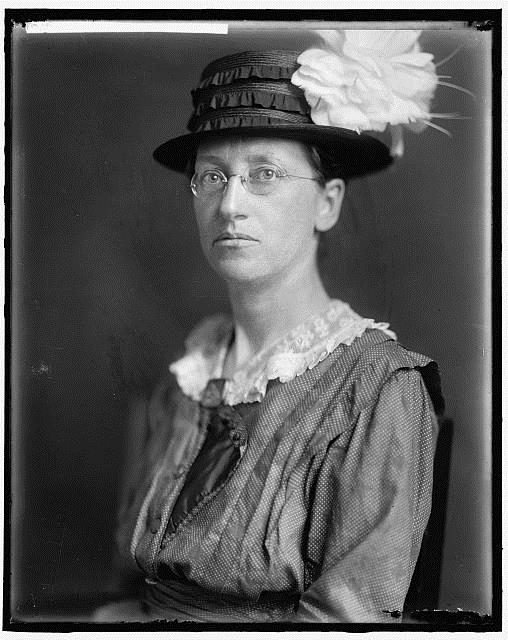The month of January marks the birthday of Emily Greene Balch (1867-1961), an American economist, sociologist, political scientist, and pacifist who rose to prominence during and after World War I.
Balch began her career as a faculty member at Wellesley College in 1896 and became a full professor in 1913. As an academic, Balch studied immigration, poverty, wars, and the economic role of women. Balch developed and taught courses in economics and sociology—emphasizing the combination of library research as well as primary research in the form of on-site investigations to formulate independent judgement (Davis and Selvidge, 2016, 71). Balch also served on state municipal boards and city commissions, and helped found the Women’s Trade Union; however, she was better known for her involvement in activist movements for racial justice, women’s suffrage, child labor, working conditions, fair wages, and, in particular, the pursuance of peace.
During World War 1, Balch joined the International Congress of Women at The Hague and prominently engaged in many important projects to encourage disarmament and mediation (versus military action) as methods to end the war. Balch later co-founded the Women’s International Committee for Permanent Peace (later the Women’s International League for Peace and Freedom or WILPF) with Jane Addams in 1919. WILPF looked into various human rights issues, including conditions in Haiti, which at the time was occupied by the U.S. Marines. During World War II, however, when confronted with Nazism and fascism, Balch revised her position on pacifism and focused on the defense of fundamental human rights. She continued to develop new strategies for peace, which included peace through internationalization, the idea of sharing resources such as major waterways or particular geographic areas (e.g. the Polar Regions), among nations. In 1946, at the age of 79, Balch received the Nobel Peace Prize (jointly with John Raleigh Mott) for her lifelong commitment and tireless work in many different capacities, campaigning and strategizing for the cause of peace. Balch was the second woman, and, as of 2017, is the only female economist to have been awarded the Nobel Peace Prize.

To learn more about Emily Greene Balch, consider these publications:
By Emily Greene Balch:
Public assistance of the poor in France / Emily Greene Balch. (1893)
A study of conditions of city life, with special reference to Boston / Emily Greene Balch. (1903)
Approaches to the great settlement / Emily Greene Balch. (1918)
The papers of Emily Greene Balch, 1875-1961 [microform] / editor, Martha P. Shane.
Papers of Emily Greene Balch, 1875-1961: guide to the Scholarly Resources, microfilm edition / editor, Martha P. Shane.
“To the president of Wellesley College” and “Toward human unity or beyond nationalism” in War no more: three centuries of American antiwar and peace writing / editor, Lawrence Rosenwald. (2016)
Biography and Analysis:
Dimand, R. W. (2011). “Emily Greene Balch, Political Economist.” American Journal of Economics and Sociology, 70(2), 464-479.
Improper Bostonian: Emily Greene Balch, Nobel peace laureate, 1946 / Mercedes M. Randall (Mercedes Moritz). (1964)
Beyond nationalism: the social thought of Emily Greene Balch / editor, Mercedes M. Randall. (1972)
Biographical dictionary of social welfare in America / editor, Walter I. Trattner. (1986)
Emily Greene Balch: the long road to internationalism / Kristen E. Gwinn. (2010)
Champions for peace: women winners of the Nobel Peace Prize / Judith Hicks Stiehm. (2014)
Women Nobel Peace Prize winners / Anita Price Davis and Marla J. Selvidge. (2016)
